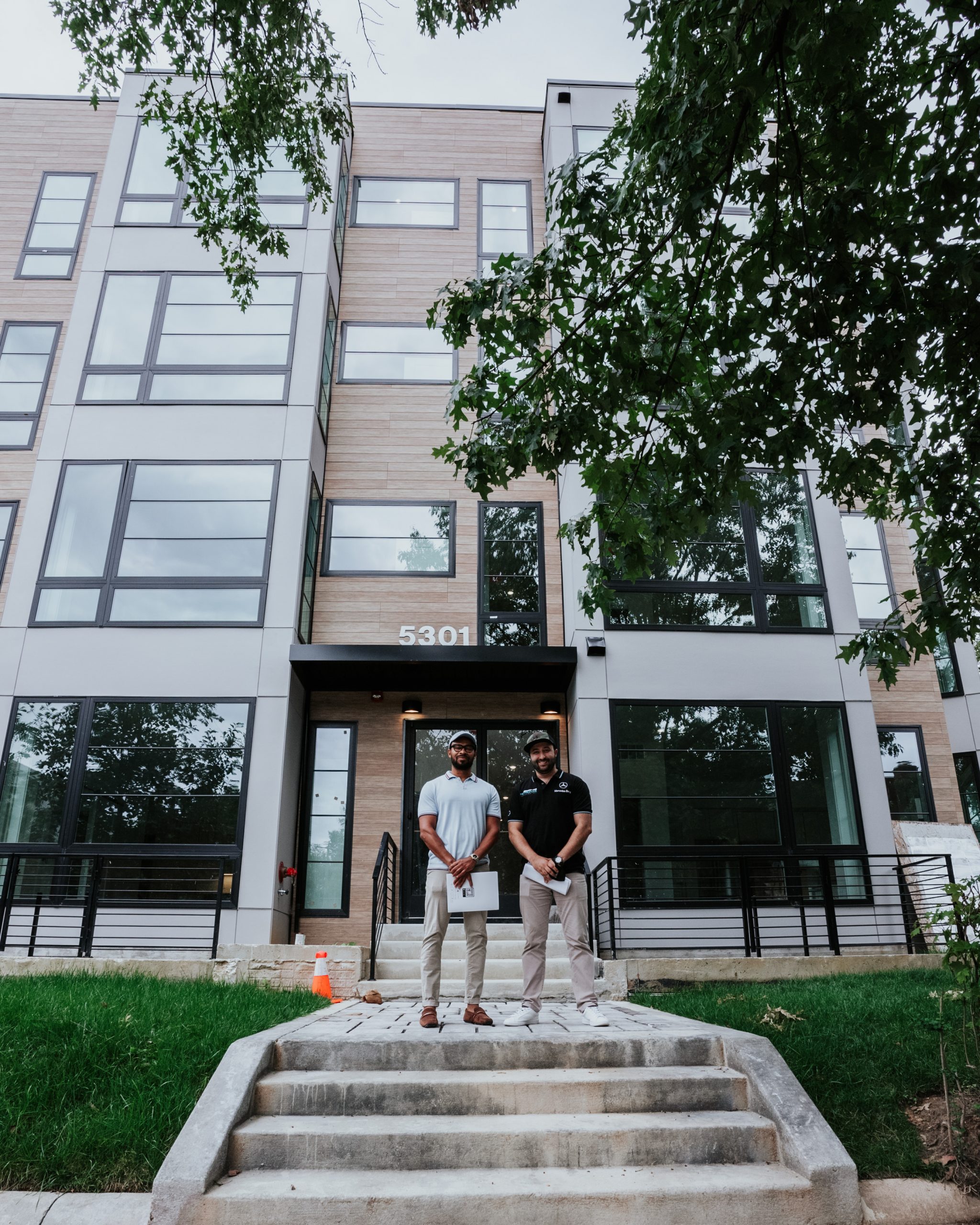Are you planning to buy a house in the Washington D.C. area, Northern Virginia or Maryland? Securing the right mortgage is one of the most critical steps towards becoming a homeowner. With so many options available, it’s easy to get overwhelmed. In this article, we will guide you through the process of obtaining a mortgage in the D.C. area and provide you with useful tips to ensure that you get the best deal.
Finding the Right Lender for Your Mortgage Needs
When searching for a lender to obtain a mortgage, there are several key factors to consider. First and foremost, it’s important to find a lender who offers competitive interest rates and favorable loan terms. Look for lenders who know the local market and can work with you to obtain competitive rates.
Another important factor to consider is the lender’s experience and reputation. Seek out a lender who has a proven track record of successfully closing loans and has positive reviews from past clients. It’s also a good idea to check if the lender is licensed and registered with the National Mortgage Licensing System (NMLS).
Finally, consider the level of customer service the lender provides. Do they respond promptly to your questions and concerns? Are they willing to work with you to find the best loan option for your unique financial situation? Choosing a lender who provides excellent customer service can make a significant difference in your overall mortgage experience.
The Pre-Approval Process: Documents and Requirements
Getting pre-approved for a mortgage is an important step in the homebuying process. Pre-approval is different from pre-qualification, since a pre-approval means you have gone through the entire process of being approved for the loan. This is a huge advantage since when you find the home you want, you’ve already gone through the process and can move forward immediately.
Especially in such a competitive low inventory market like the D.C. area, getting pre-approved is a must. “Being organized puts you in a better position to win”, says One Street President Samer Kuraishi. You wouldn’t want to find the home of your dreams only to miss out by spending time getting your loan details submitted, a process which could have already been completed!
To get started with pre-approval, you’ll need to find a good lender and provide them with a variety of documents to verify your income, assets, and creditworthiness. Here’s a list of the documents you’ll typically need to provide:
- W-2s or 1099s from the past two years
- Pay stubs from the past 30 days
- Bank statements from the past two to three months
- Tax returns from the past two years
- Proof of any other income, such as rental income or alimony
- Proof of any assets, such as retirement accounts or investments
- A list of your debts, including credit cards, auto loans, and student loans
- Proof of any additional sources of financial support, such as gifts from family members
Once you’ve provided these documents to your lender, they’ll review your financial information and determine how much you can afford to borrow. With a pre-approval letter in hand, you’ll have a better idea of your budget and can start shopping for homes with confidence.
TIP: When shopping around for rates with different lenders, do it all within a two week time period. Spreading it out over months will count as multiple inquiries on your credit report and damage your credit score.
Locating Your Dream Home and the Appraisal Process
Once you’ve been pre-approved for a mortgage, the next step is to find the home you wish to buy. Once you’ve found a home, your lender will require an appraisal to determine its value. An appraisal is an unbiased estimate of the value of the property that is being financed. The appraisal is conducted by a licensed appraiser who will examine the property and compare it to similar properties in the area to determine its value.
During this process, the appraiser will take into account several factors, including the condition of the property, the size of the property, the location, and any recent improvements or upgrades. It’s important to note that the appraised value of the property may differ from the asking price.
Clearing the Title Process
Once you have found your dream home and had it appraised, the next step is to clear the title. This is an essential process to ensure that there are no legal issues with the property that could affect your ownership or use of it. Clearing the title is the responsibility of the seller, but as a buyer, you should be aware of the process involved.
The title clearing process involves several steps, including:
Obtaining a title search: A title search is conducted to ensure that the seller has a clear title to the property and there are no liens or claims against it.
Resolving any title issues: If any title issues are discovered during the title search, they must be resolved before the sale can be completed. This may involve paying off outstanding debts or settling any disputes.
Obtaining title insurance: Once the title has been cleared, it is recommended that you obtain title insurance. This protects you in the event that any title issues arise after the sale has been completed.
With the help of a knowledgeable real estate agent or attorney, you can ensure that the process goes smoothly and you can close on your dream home without any issues.
Closing on the Property: What’s Involved
Closing on a property is the final step of the home buying process. This is where you sign all the necessary paperwork and finalize the transaction. Here are some things to keep in mind during this stage:
Closing Costs
You will be required to pay closing costs at this stage. These costs may include loan processing fees, attorney fees, title insurance, property taxes, and other fees associated with the mortgage process.
Closing Disclosure
You will receive a Closing Disclosure at least three days before closing. This document outlines all the final costs associated with the mortgage, as well as the terms of the loan.
Final Walkthrough
Before closing, you will have the opportunity to do a final walkthrough of the property. This is your chance to make sure everything is in order and as agreed upon in the contract. If you notice any issues, be sure to bring them up with the seller or your real estate agent.
Signing Documents
At closing, you will be required to sign several documents. These may include the mortgage agreement, the promissory note, the deed of trust, and the closing disclosure.
Realistic Costs and Earnest Money
When it comes to buying a home in the Washington D.C. area, including Northern Virginia and Maryland, it’s important to keep in mind the various costs that come with the process. In addition to the down payment, there are a number of fees and expenses that will need to be paid throughout the process, such as:
Closing costs
These are typically 2-5% of the home’s purchase price and include fees for services such as title searches and fees paid to the lender.
Home Inspection Fees
The average cost in the D.C. area for a home inspection is around $300. This can vary depending on the size of the home. For less than 1,000 square feet expect $100-$400. For 1,000 to 2,000 square feet $400 – $500 is average. Homes larger than 2,000 square feet can exceed $500.
Home Appraisal
This is to assess the total value of the home and averages $500 to $600 in the D.C. area. The appraiser will walk through the property and collect data to determine an accurate assessment of the home’s value.
Property taxes
Expect to pay any additional taxes on the property that are due up to the end of the year. The national average is around 1% of the property’s assessed value and homes in the D.C. area fall fairly close to this average. This means property taxes on a home valued at $750,000 would be $7,500 per year.
Homeowners insurance
This is typically required by lenders and can cost several hundred to several thousand dollars per year depending on the size and location of the home. In the D.C. area homeowners insurance averages about $1,200 which is 25% less than the national average.
Private mortgage insurance (PMI)
If the down payment is less than 20% of the purchase price, PMI may be required and can cost several hundred to several thousand dollars per year. PMI is calculated as a percentage of the original loan amount and starts around 1.8% for credit scores in the low 600s and can be as low as 0.6% for 750+ credit scores.
It’s important to also consider earnest money, which is a deposit made by the buyer to show the seller that they are serious about buying the home. This money is typically held in an escrow account and is applied towards the down payment at closing. The amount of earnest money can vary depending on the purchase price of the home, but it is usually around 1-3% of the purchase price.
Payment Assistance Programs for Homebuyers in the Washington DC Area
If you’re a first-time homebuyer or have limited income, you may qualify for payment assistance programs. In the Washington D.C. area, there are several options available to help with down payment and closing costs. Some programs offer grants, while others provide low-interest loans that are forgiven after a certain number of years. Here are some programs you may want to consider:
Virginia Housing Development Authority (VHDA)
VHDA offers a variety of loan programs to help first-time homebuyers and those with low to moderate incomes. Their programs include down payment assistance grants and loans, as well as mortgage credit certificates that can help reduce your tax liability.
Maryland Mortgage Program
This program provides down payment and closing cost assistance to first-time homebuyers who meet certain income and credit requirements. The program offers a variety of loan options, including 30-year fixed-rate mortgages, adjustable-rate mortgages, and more.
DC Open Doors
This program offers down payment assistance loans and reduced mortgage rates to first-time homebuyers and those purchasing homes in designated areas of the District of Columbia. The program also offers a tax credit of up to $2,000 per year for the life of the loan.
It’s important to note that each program has its own eligibility requirements and application process, so be sure to research each program carefully to determine which one may be right for you.
How to Prepare for Obtaining a Mortgage
Obtaining a mortgage can be an intimidating task, but being prepared can make the process smoother. Here are some tips on how to prepare for obtaining a mortgage in the Washington D.C. area, including Northern Virginia and Maryland:
- Check your credit report: Before you even begin the mortgage process, it’s important to know your credit score and check for any errors on your credit report. You can obtain a free credit report once a year from each of the three major credit reporting agencies.
- Save for a down payment: It’s important to have a down payment saved up before you start the mortgage process. This shows lenders that you’re serious about buying a home and can also reduce your monthly mortgage payments. The larger your down payment, the wider your options tend to be.
- Determine your budget: Generally your total yearly mortgage payments should not be more than 30% of your pre-tax income. So if you earn $100,000 per year before taxes, your mortgage payment should not exceed $2,500 per month.
- Get pre-approved: Getting pre-approved for a mortgage can help you understand how much home you can afford and can also make the home buying process smoother. During the pre-approval process, a lender will review your credit score, income, and debt to determine how much they are willing to lend you.
- Gather necessary documents: Once you’re pre-approved, you’ll need to provide various documents to your lender, such as tax returns, pay stubs, and bank statements. Be sure to gather all necessary documents early on to avoid delays in the mortgage process.
- Stay financially stable: Throughout the mortgage process, it’s important to maintain financial stability. Avoid taking out new loans or opening new lines of credit, as this can negatively impact your credit score and debt-to-income ratio.
By following these steps, homebuyers can be better prepared to obtain a mortgage and successfully purchase a home in the Washington D.C. area, including Northern Virginia and Maryland. Remember, just because you don’t get approved for a certain loan does not mean you never will. A good lender will work with you to secure the loan you are looking for.
Obtaining a Mortgage in the D.C. area: Closing Thoughts
Obtaining a mortgage in the Washington D.C. area, including Northern Virginia and Maryland, may seem like a daunting process, but with the right knowledge and preparation, it can be a smooth and rewarding experience. To recap, homebuyers should begin by finding a good–preferably local–lender. Buyers should go through the pre-approval process for their mortgage, gather all necessary documents, locate a home, go through the appraisal process, clear the title, and finally, close on the property.
Homebuyers should also be aware of the costs associated with buying a home, including earnest money, down payment, and closing costs, and consider payment assistance programs that may be available to them. To fully prepare for the mortgage process, homebuyers can work on improving their credit score, saving for a down payment, and researching different mortgage options. By following these steps and working with experienced real estate professionals, homebuyers can successfully obtain a mortgage and find their dream home in the D.C. area.
Need some help? Schedule a 100% free consultation with our experts to get started.







